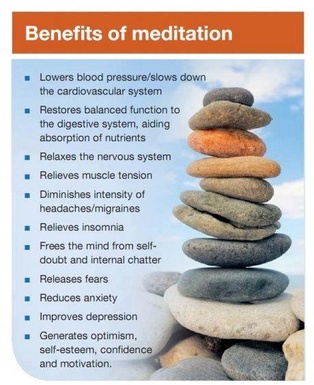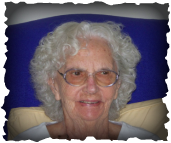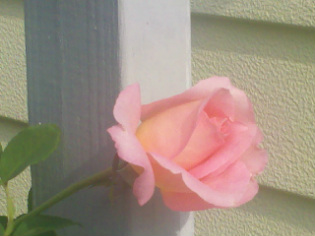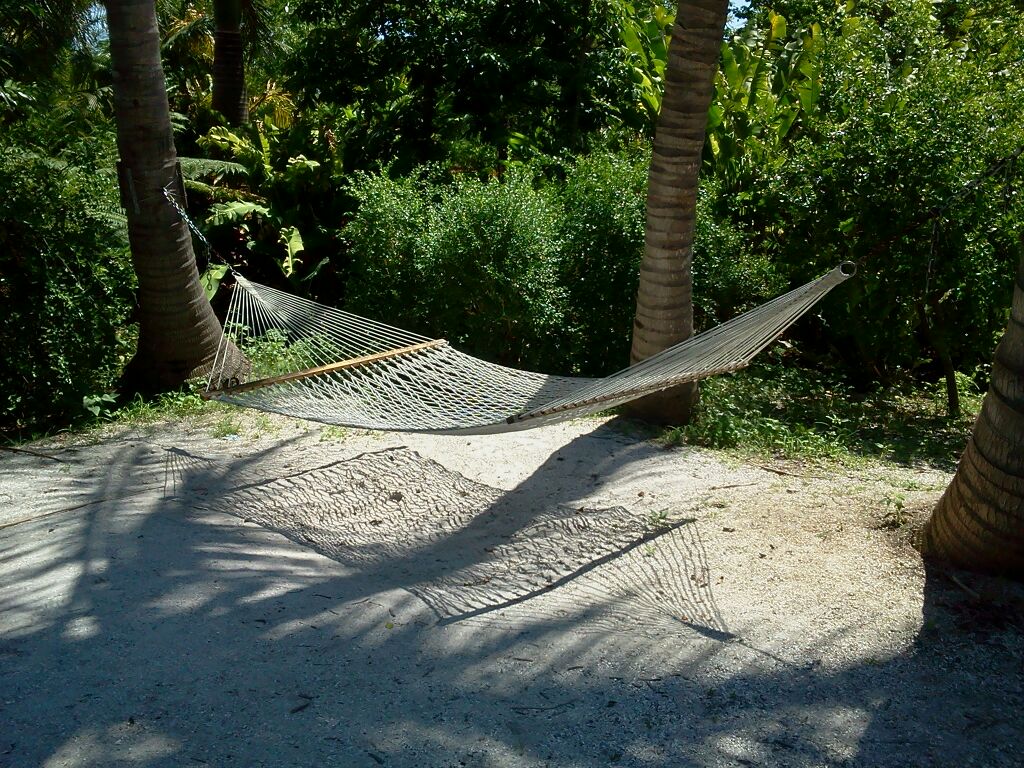|
3/31/2020 0 Comments Caregiving during the Pandemic"Be excessively gentle with yourself." ~John O'Donohue This is undeniably, incredibly hard. I was a caregiver for my mother for 17 years, and we weathered multiple hurricanes and hospital stays, pneumonia, falls, and other assorted emergencies, but never a pandemic. During the last months of her life, my mother was in a nursing home and they had an outbreak of flu so bad that they closed to everyone in order to contain it. As irony would have it, I caught the flu there and was then unable to go back to visit my mother for 8 of the longest weeks of my life. So, I do have the very deepest empathy for any family member who is separated from their loved one during this crisis. Unable even to say goodbye. It's heartbreaking, deeply distressing and emotionally devastating. My tears have flowed with those of family members sitting outside the nursing home window with their loved on on the other side.
I cannot really imagine how difficult it is to navigate this crisis, but I would say to anyone caught in this cauldron of fear, pain, helplessness -- keep your focus on what you CAN do -- express your love and be present in any way possible. Use a phone call or video chat or a greeting card or photo held up to a window -- whatever works in your particular circumstance, do your best. And know in your own heart that you are doing the best anyone can in an impossible situation. Try to keep yourself calm and centered by any means -- prayer, deep breathing, meditation, yoga are all valuable helps. Know that others are with you in spirit, praying for your strength and safety. Be at peace. Be excessively gentle with yourself.
0 Comments
 I have written often of the benefits of meditation, particularly when combined with music as a guided meditation experience. Now there is increasing evidence from mainstream medical research of what has been understood for thousands of years by wise teachers of many traditions: meditation is great for people! The truly excellent thing about meditation is that anyone can do it, pretty much anywhere. It is easy, free (or very inexpensive if you choose to buy CDs or download guided versions), is proven as effective as pharmaceutical aids in reducing depression and stress, and has no side effects other than an increased sense of well-being and peacefulness. Click here to see the research done at Johns Hopkins investigating meditation as anti-depressant. What's not to love about that? The Mayo Clinic also published a newsletter article titled "Meditation: A simple, fast way to reduce stress" which gives an great overview of the subject . Various forms of meditation have been taught, mostly in eastern cultures, and the practice has been growing by leaps and bounds in the west over the past thirty years or so. There have been a number of pioneeers in bringing the practice of mindfulness-based stress reduction (MSBR) to the west, including Jon Kabat-Zinn who founded the Stress Reduction Clinic and Center for Mindfulness in Medicine, Health Care, and Society at the University of Massachusetts Medical School. His clinic was featured on the public television series Healing and the Mind with Bill Moyers in 1993. Meditation has such incredible benefits that I believe everyone can find some help by practicing it. In my own experience as a caregiver, meditation and music, combined with fervent and frequent prayer, saved my sanity when it was hanging by a thread. I find it compelling that the list of benefits meditation offers so exactly corresponds to symptoms many (or most) caregivers experience. The only mystery to me is why more caregivers don't use this incredible tool for balance and strength. Which is why I am making it my mission to get this information out to those who need it through this website & blog, by writing, speaking, teaching, and otherwise promoting it. How often is there a perfect solution to so many of our everyday stresses just waiting for us to sit down and get quiet long enough to find its gifts? If you'd like to explore the ideas and resources for meditation, please visit my Meditation and Music page on this site and also take a look at the ideas for Self-care and Caregiver Resource Store. I will also be publishing a book which further details resources and tools for caregivers: Sanity Savers for Caregivers at the End of Their Rope. You can add your name for an announcement of publication, which is targeted for March 2014. If you would like to read a chapter from the book about the uses of music and meditation, click here. I encourage you to explore the idea of various forms of meditation and find what appeals to you personally. In my 17 years of caregiving, music and meditation were the brightest jewels in the caregiver crown. Try it out. You have nothing to lose and so very much to gain! 7/29/2013 Beautiful Compensations of Caring"It is one of the most beautiful compensations of life, that no man can sincerely try to help another without helping himself."  Throughout my life, I have come to know a deep spiritual truth: We are all connected. According to Chief Seattle, "Humankind has not woven the web of life. We are but one thread within it. Whatever we do to the web, we do to ourselves. All things are bound together, All things connect". To me, this connection called the web of life means that every action we take (or avoid taking) has an impact somewhere, either within our own lives, on other life forms, or upon our environment. This idea has been reiterated by many wise poets, writers, philosophers and theologians, so it is not new. However, I think it applies even more strongly to the relationship of caregiver to care receiver. I'm speaking here of the quality of our caregiving experience, from both sides of the equation. I've written in this blog of some of the negative consequences caregiving can have, in terms of the caregiver's health, happiness and sense of balance in life. All true. But I want to give some time also to the beautiful compensations, those incredibly precious moments of connection at the soul level, that can be a part of caregiving as well. Every person and situation is as unique as a fingerprint or snowflake, so generalizing is risky. But I think this is a crucial part of creating a more serene, beneficial experience, so I am willing to go out on this limb. In caring for my mother, I learned (sometimes the hard way!) that we were incredibly connected -- whether that was judged a good or bad thing was up to me and the perspective I chose. She responded to me on an almost psychic level at times, picking up on emotions and reactions of which I might be totally unaware. She often understood that something was upsetting me, even before I knew it! Though she could not always ferret out the correct reasons, she still related to me from this knowing. I soon realized I could not "fool" her into believing everything was fine if it wasn't. So, I had to clear my own mind and heart before approaching her. I could not hide behind a pretense or falseness. Mom spotted that immediately! She was like a dolphin whose echo-location scanned below the surface, all the way through my innermost self, and saw truth. It reminded me of times as a child when I believed Mom could tell if I was fibbing by looking into my eyes. Perhaps she could -- a mother's own type of radar or a truth-seeking missile. There were several activities we did to nurture and connect us: music was a powerful device for this. We often sang together, watched musicals on DVD that were her favorites, and listened to hymns or songs by Nat King Cole, Bing Crosby, and other "crooners" from Mom's era. I wish that I'd known about the iPod Project (www.musicandmemory.org and on this site click here) in time to use that with my Mom. But, alas, I learned of it too late. Another connection was found through flowers, specifically roses -- that lovely flower was Mom's talisman, since she grew a beautiful rose garden which she shared with her friends to uplift and bless them all her life, so it was perfect for reminiscing. And, lastly, perhaps the most potent of all: simple loving touch. I used gentle, soothing touch with Mom every day -- putting lotion on her skin, gently rubbing her back at bedtime, using aromatherapy oils on her hands and arms, hugging her several times a day, touching her arm or hand as we walked, reaching over to pat her knee as we watched TV or in the car. I used touch along with giving her reassuring words, and loving eye contact. It was this that most often sparked a spontaneous "I love you", or "You're a little sweetheart" (her favorite term of endearment). Now, in the interest of being completely candid, I must report that I am not a saint. There were days when exhaustion, lack of sleep, worries, distractions, stress or any number of other things got in the way of my being the best caregiver I could be. There were days I didn't much like myself for being tired, short-tempered, upset. I've had to figure out how to forgive myself for not being perfect, for not always knowing how to approach this huge job of being completely responsible for another life. Most days I can do that. I'm still working on it. I wanted to share this, from my heart, because I know that the one thing caregivers often find in short supply is hope. Hope for a loving positive experience in caring for one they love. My advice is to create that hope and joy one moment at a time. Make this moment count. Use all your creativity and passion to connect through all the senses -- sound, touch, smell, sight and taste. Be present as a healing, loving being right now. Let the next moments and days take care of themselves as much as you can. And find the peace and grace of those beautiful compensations of caring -- one moment at a time.  Are you a family caregiver at the end of your proverbial rope? If the answer is yes, hang on and read on! You have options: 1. You can tie a knot in the end of the rope and hang on for dear life in hopes that some miraculous rescue will occur before your strength gives out and you fall into the abyss of overwhelm, frustration and caregiver burnout below. (I don’t recommend this option, since, in my experience miraculous rescuers are few and I usually go for a more proactive option, anyway. Plus, if you fall and hit the rocks below, it really hurts!) 2. You can tie a noose with the rope and figuratively hang yourself, in essence, giving up your own precious life by giving in to negativity, depression, and despair. By giving up, you shift all responsibility for caregiving to someone else and abdicate your role. (I certainly don’t recommend this option, since I believe whole-heartedly in Life with a capital “L” and that love has amazing powers to heal and keep us whole! But you would be surprised how many people choose this) 3. You can swing on the rope trying to clear the canyon of caregiver destruction beneath you and get on solid ground. (This is a marginally better choice than #1 or #2, but still doesn’t work for me) 4. You can use the rope to make a hammock of support beneath you – a place you can relax, rest and renew your strength, inner resources, and commitment to the caregiving journey. Eventually, your rope hammock can become a rope bridge allowing you to safely navigate across the caregiver chasm and keep your life and sanity in the process. (Now, I admit I am biased, but this is the one I would choose.) This post is an excerpt from my soon-to-be-published ebook, which provides practical tips and gentle self-care and self-nurturing techniques to make life less of a struggle and more of a loving learning experience. If you are tired of struggling and dangling your way through the uncertainties of caregiving, please sign up to receive a release notice when Sanity Savers: For Caregivers at the End of Their Rope is published. Find support for a more balanced, healthy, life-enhancing approach to giving care – a hopeful, positive way that includes you along with your care-receiver. |
About Karen
Karen is a compassionate, enthusiastic student of life, who cared for her mother for 17 years. She brings her insights, compassion, experience and desire to share knowledge and healing to this ongoing conversation with others on the caregiving path. If you are caring for a parent, spouse, friend or other loved one this site offers sanity-saving tips, open-hearted self-care ideas, and an open forum for discussion, connection and sharing resources for the journey. Archives
October 2021
CategoriesAll Acceptance Aging Together Alan Cohen Alive Inside Movie Alzheimer's Alzheimer's Prevention A Mind Of Your Own Anxiety Aromatherapy Audio Therapy For PTSD Austin Air Hepa Filter Autism Back Care Video Beginner's Mind Being Present Blessing For Caregivers Books Brain Insulin Butterfly Story Calm Calm.com App Care For Veterans Caregiver Advocate Caregiver Coalition Caregiver Comfort Kit Caregiver Guilt Caregiver Retreat Caregiver's Serenity Prayer Caregiver Stress Caregiver Support Care Giving Caregiving Vulnerability Care In Hospital Caterpillar Into Butterflies Chamomile Tea Cindy Laverty Comedian Computers & Exercise Crisis Dan Cohen Deepak Chopra Delirium Depression Diabetes Disaster Preparedness Distractions Dr. Dharma Singh Khalsa Dr. Oliver Sacks Eden Alternative Eldershire Elizabeth Dole Foundation Emergency Planning Emergency Preparation Emerson End Of Caregiving Enough Already Escapism Essential Oils Food Safety Forgiveness Funny Stories Gaiam.com Gail Sheehy Gift Of Alzheimer Gift Of Healing Presence GMO Food Green House Project Gregory Fricchione Md Grief Guilt Happy Light Healing Holding Hands Home As Sanctuary Hope Hospital Caregiving Hospital Stay Humor Inspirational Reading Ipods For Nursing Homes Isolation Jacksonville James E. Miller John Denver Johns Hopkins Study John T. McFadden Jon Kabat-Zinn Kelly Brogan Kirtan Kriya Meditation Lao Tzu Laugh Laughter Lavender Loneliness Loss Of Purpose Love Love In The Nursing Home Maya Angelou Mayo Clinic Mayo Clinic Alzheimer's Blog MD Meditation Meditation Garden Melatonin Memory Memory Cafe Military Caregiver Mindfulness Meditation Mr. Bean Music Music & Alzheimer Music And Memory Neurological Research Noise Pollution Operation Family Caregiver Opportunity Overnight Respite Care Pandemic Passages In Caregiving Patience Paul Coelho Peace Post-traumatic Stress Disorder Power Of Love Prayer PTSD Quality Of Sleep Radical Contentment Relaxation Releasing Problems Renewal Research Respite Rewind Rodney Yee Rosalynn Carter Rosalynn Carter Institute For Caregiving Rowan Atkinson Sanctuary Sanity Self Care Serenity Silence Sleep Slowing Time Solutions Soothing Music Stress Stress Relief Sun Sunshine Support For Caregivers Tai Chi Thanksgiving The Care Company The Kiss Time Traumatic Brain Injury Travel With Alzheimer's Person Treat VA Caregivers Valentine's Day Verilux Veteran Farms Veterans Veteran Suicide Vitamin D Wayne W. Dyer Wellness Wendell Berry White Noise William H. Thomas Worry Yoga Yoga Video |





